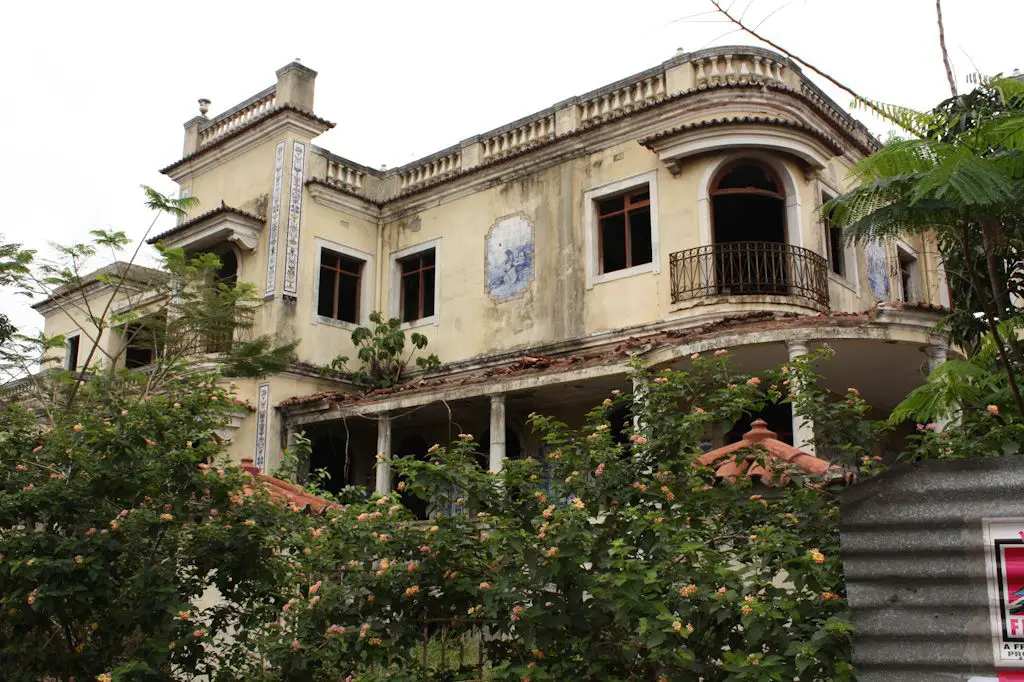Wondermondo 🢖 World 🢖 Wonders of Africa 🢖 Wonders of Mozambique
Territory
Wonders of Mozambique
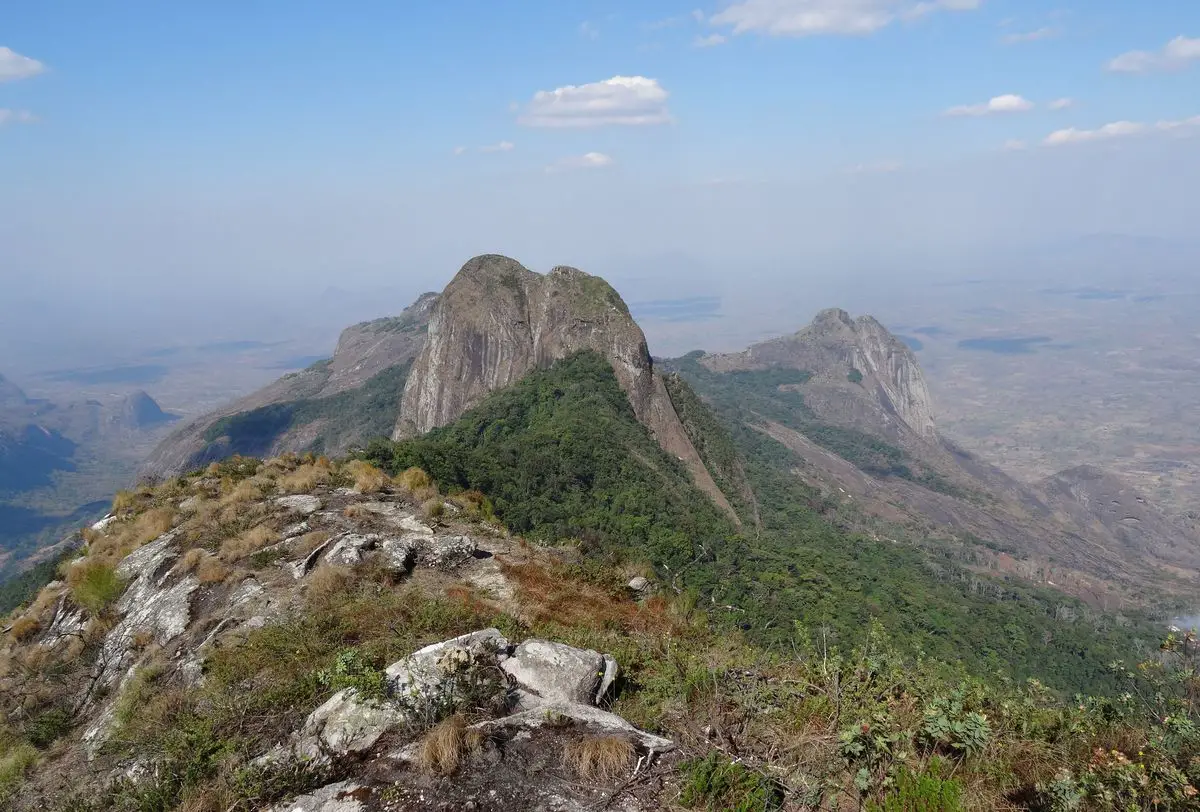
 Highlights
Highlights
Mozambique is a gorgeous, large country with a high diversity of landscapes and comparatively well-preserved (until recent times) nature.
This country has a magnificent landscape. It is too little researched and may bring many interesting discoveries in the future, especially regarding the Stone Age people. The most amazing wonders of Mozambique are:
- Biological diversity. In several locations of Mozambique are found inselbergs – sometimes large enough to sustain unique ecosystems with many species found only in a single place. Such example is Mount Mabu with its unique forest which was discovered by scientists in 2005 with the help of… Google Earth!
- Medieval trading towns. In Mozambique are several towns and cities that were founded by Arab, Somali, and Persian traders and also local people in medieval times.
Map with the described wonders of Mozambique
If you see this after your page is loaded completely, leafletJS files are missing.
 Top 23 wonders of Mozambique
Top 23 wonders of Mozambique
Geological wonders
Mount Panda (Monte Panda)
Manica
Very impressive and steep granite dome that rises 800 m above the surroundings.
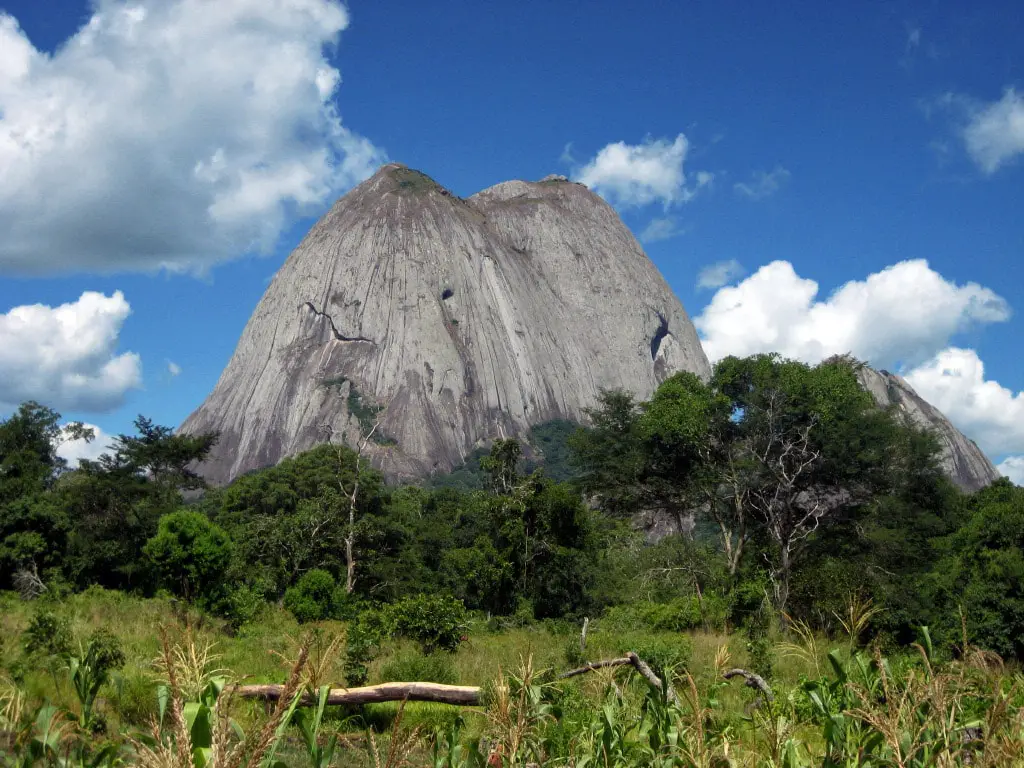
Cabeça do Velho (Mount Bêngo)
Manica
Spectacular rock that resembles a giant head. When it rains, waterfalls on the slopes look like tears rolling down the cheeks. Cult place.
Mount Namuli
Zambezia
This granite dome rises more than 500 m above the surroundings.
Quedas do Lurio
Niassa, Nampula, Cabo Delgado
Rapids on Lurio River.
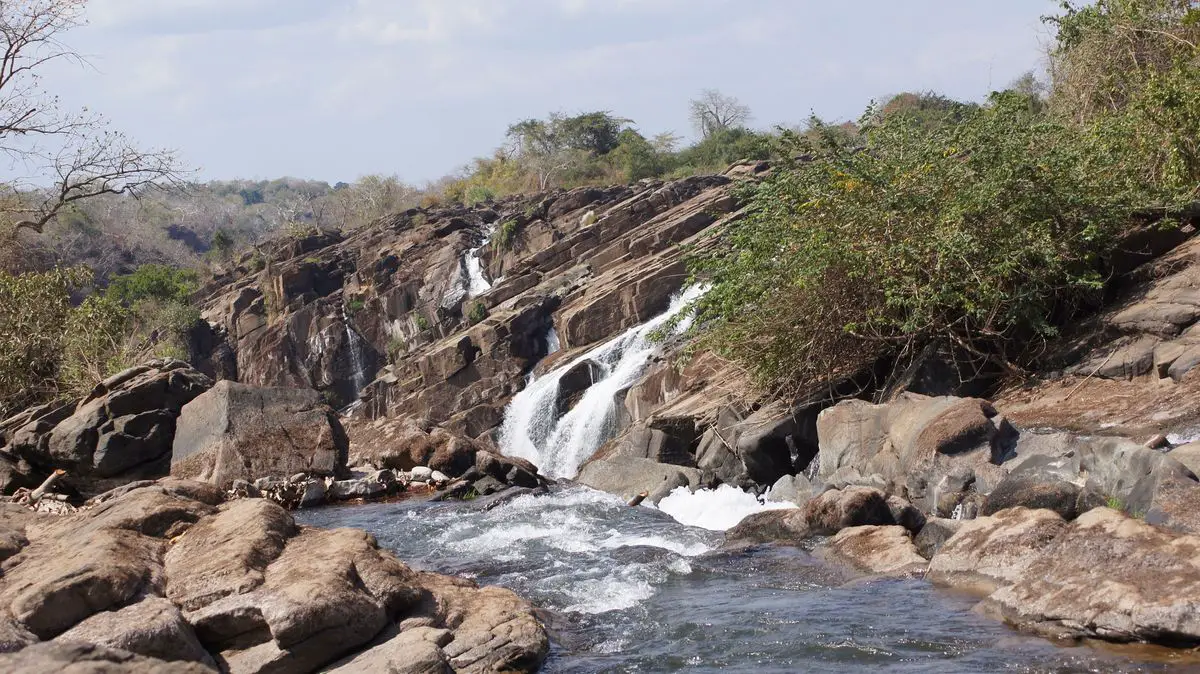
Martins Falls (Muvumodzi Falls)
Manica
152 m tall waterfall with two major cascades. The tallest cascade is 120 m tall.
Tulua pegmatites
Zambezia
Pegmatites with numerous rare minerals and large crystals of precious stones. Here are found high-quality crystals of verdelite, beryl, topaz, spodumene, citrine, and other minerals.
Murombodzi Falls
Sofala
More than 100 m tall waterfall with many cascades, located in the spectacular forest of Mount Gorongosa.
Khodzu caves (Khodzue, Codzo caves)
Sofala
A cave system in Cheringoma limestone plateau. In front of caves has formed a system of limestone terraces – gours.
Muiane pegmatites
Zambezia
An important mine of tantalum. Here, in a giant body of pegmatite that is more than 1 km long and 400 m wide, is found a high diversity of minerals, such as beautiful crystals of tourmaline, kunzite, ametrine, a variety of tantalite named moçambiquite, and many other minerals.
Biological wonders
Mount Mabu
Zambezia
Some 7,000 hectares large, pristine rainforest, surrounded by savannah. This isolated forest contains numerous species of plants and animals that are found only here, including a unique chameleon, three species of snakes, and four butterflies. Further research may bring new discoveries.
Mount Zembe
Manica
Isolated, tall granite dome surrounded by a small patch of natural forest. Here have been found endemic species of plants and animals, such as the beautiful cycad Encephalartos munchii and Aloe decurva. An ancient cult site, used for rituals up to this day, site of legends.
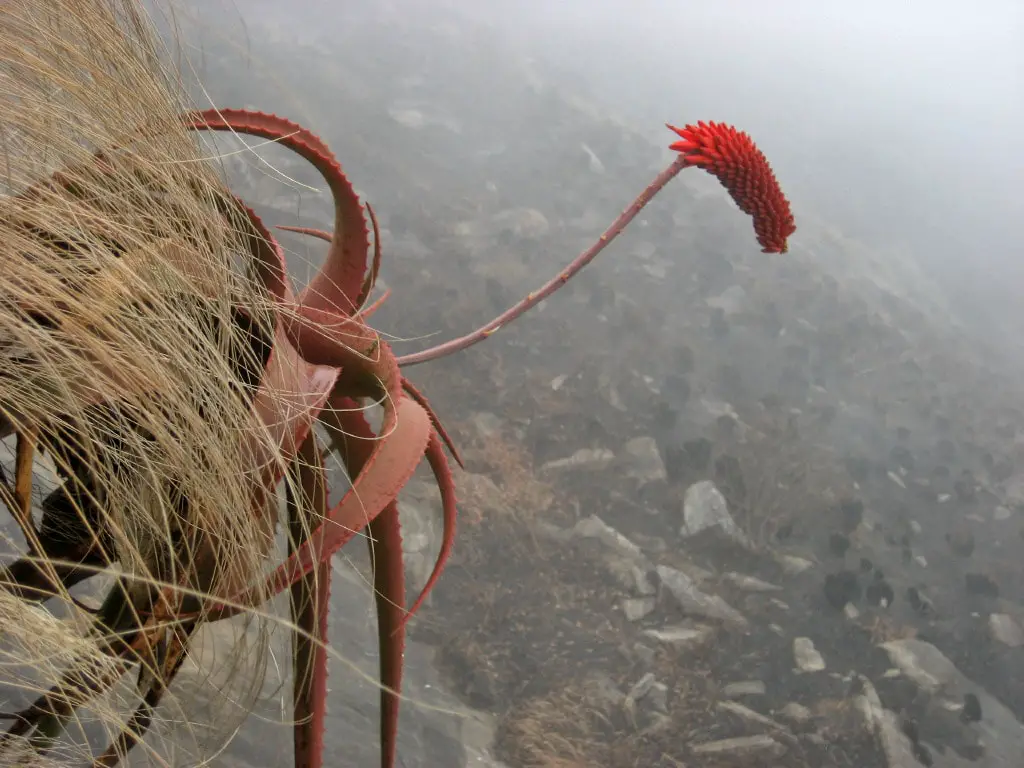
Mount Namuli forests
Zambezia
Biodiversity hotspot with many endemic species that are found only in these forests. Unique species include a bird – Namuli apalis (Apalis lynesi) and the Vincent’s Bush Squirrel (Paraxerus vincenti).
Songo Baobab
Tete
Giant baobab with a circumference that exceeds 25 m.
Archaeological wonders
Ngalue Cave
Niassa
This cave was inhabited by humans in several time periods including the time period between 105 and 40 thousand years ago (Middle Stone Age) – the time when humans left Africa and the first stone tools were made. The cave contains diverse stone tools – an important find that shows the experiments in design by early people. An important find is a great amount of wild sorghum that was brought to the cave and ground.
Chinhamapere Hill and petroglyphs
Manica
Sacred mountain in the Vumba Mountains. The mountain is an important cult site with prehistoric paintings (human figures with bows, and arrows, depiction of rituals), and a sacred forest. Rituals take place here up to this day.
Architecture wonders
Island of Mozambique
Nampula
Urbanized island with numerous historical buildings. Arab trade port was established here in medieval times. The island (and later the whole country) was named after Musa Mbiki – an Arab trader. Contains the oldest European fort in Sub-Saharan Africa – Fort São Sebastião, built in the 2nd half of the 16th century, a rare example of Late Gothic (Manueline) architecture in Africa.
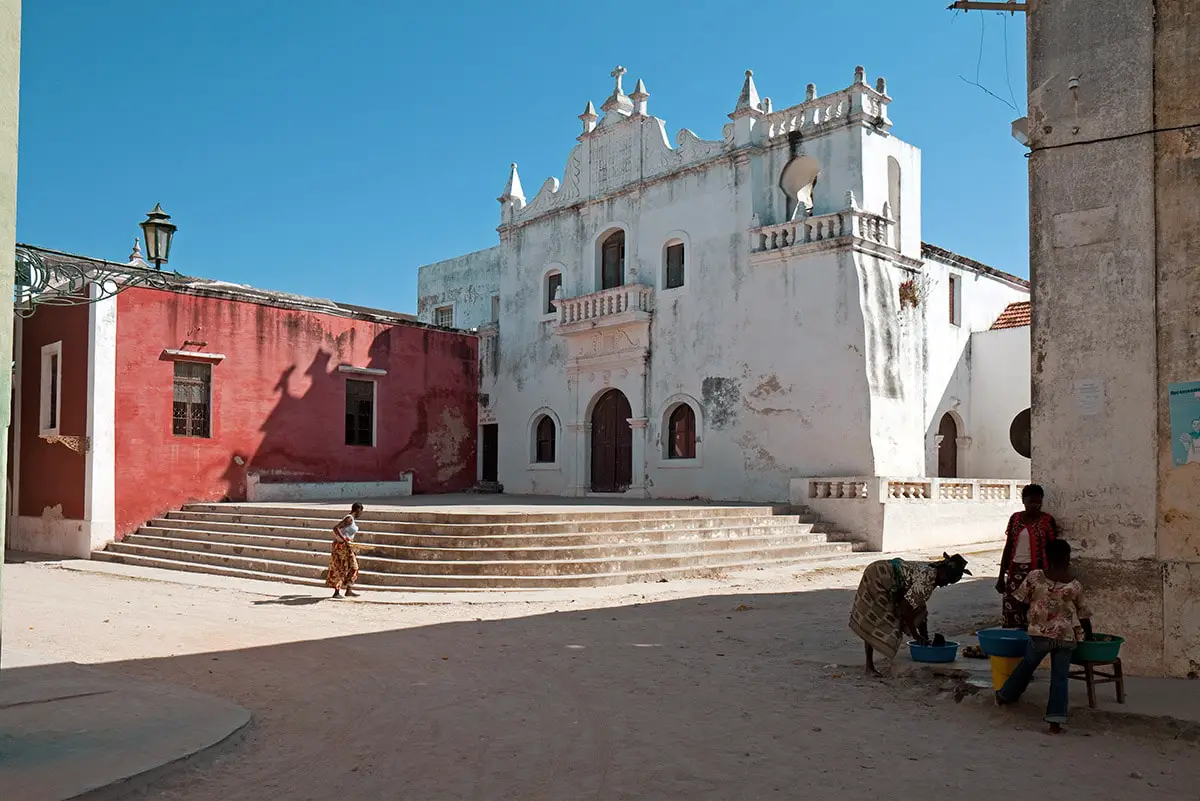
Stone Town of Ibo Island
Cabo Delgado
A historical town, first founded by Swahili people in prehistoric times and later inhabited by the Portuguese. Ruins of numerous historical buildings whose architecture is influenced by Swahili, Portuguese, Indian, and Arab traditions.
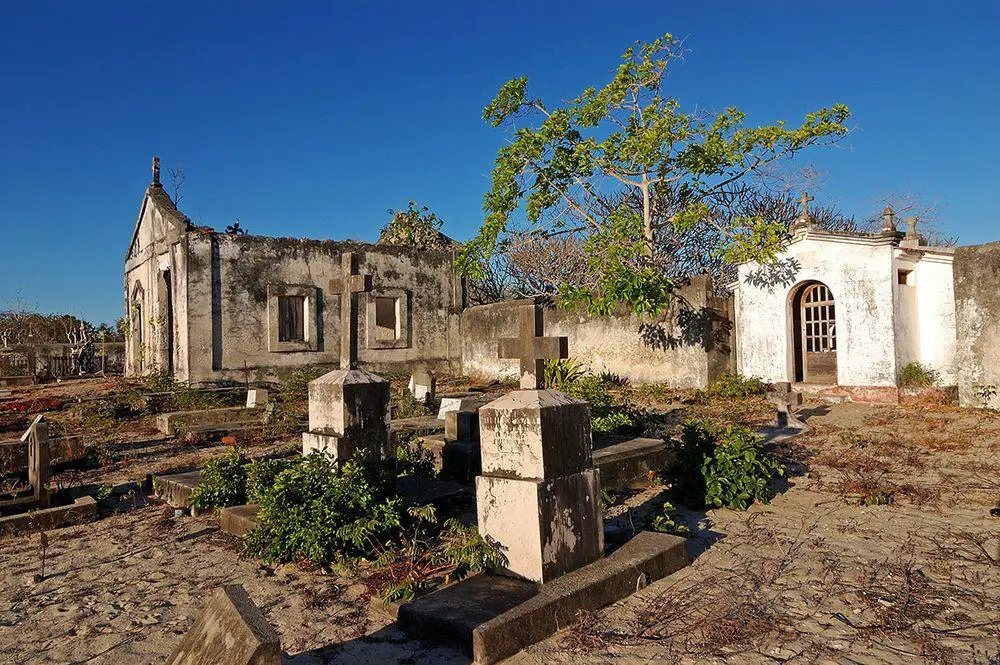
Manyikeni
Inhambane
Ruins of an abandoned city that was inhabited in the 12th – 17th century. Remnants include massive stone walls and most likely were built by the same culture that built Great Zimbabwe.
Sofala
Sofala
Remnants of a medieval trade city, founded by Somalian traders around 700 AD, since the 1180s subjugated to Swahili. Here is located Fort São Caetano which was constructed in 1505 from stone that was imported from Europe.
Maputo railway station
Maputo City
Ornate station building in Eclectic style with Art Noveau elements, built in 1913 – 1916.
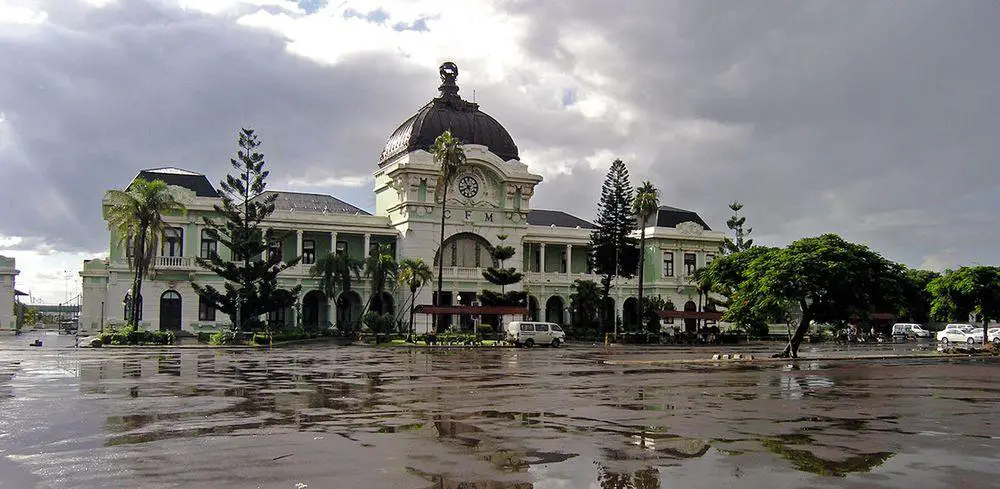
Vila Algarve
Maputo City
Beautiful city building with rich ornamentation, built in the 1930s. Obtained bad fame as it was used by the secret police, now in ruins.
Boroma Mission
Tete
Catholic mission, built at the end of the 19th century. One of the rare examples of monumental historical architecture in the country.
Chibuene
Inhambane
Ruins of an abandoned coastal city. The settlement was occupied twice – in the second half of the first millennium AD and after 1450 AD when massive dry stone walls were built. The city most likely had close trade links with Manyikeni.
 Recommended books
Recommended books
Mozambique (Bradt Travel Guide)
Mozambique is a country of two halves. The tourism-savvy south offers palm-lined tropical beaches, luxury lodges, and diving to rank with the best in the world, plus the capital Maputo, a city oozing with Afro-Mediterranean flair.
Six Years in Mozambique: Things I Haven’t Told Mom
With $150 and the belief that all children should be given the skills to keep themselves and their loved ones alive, Amy Gillespie set out for Mozambique to meet the Goliath who had whispered to her in the night, “Come find me.”

